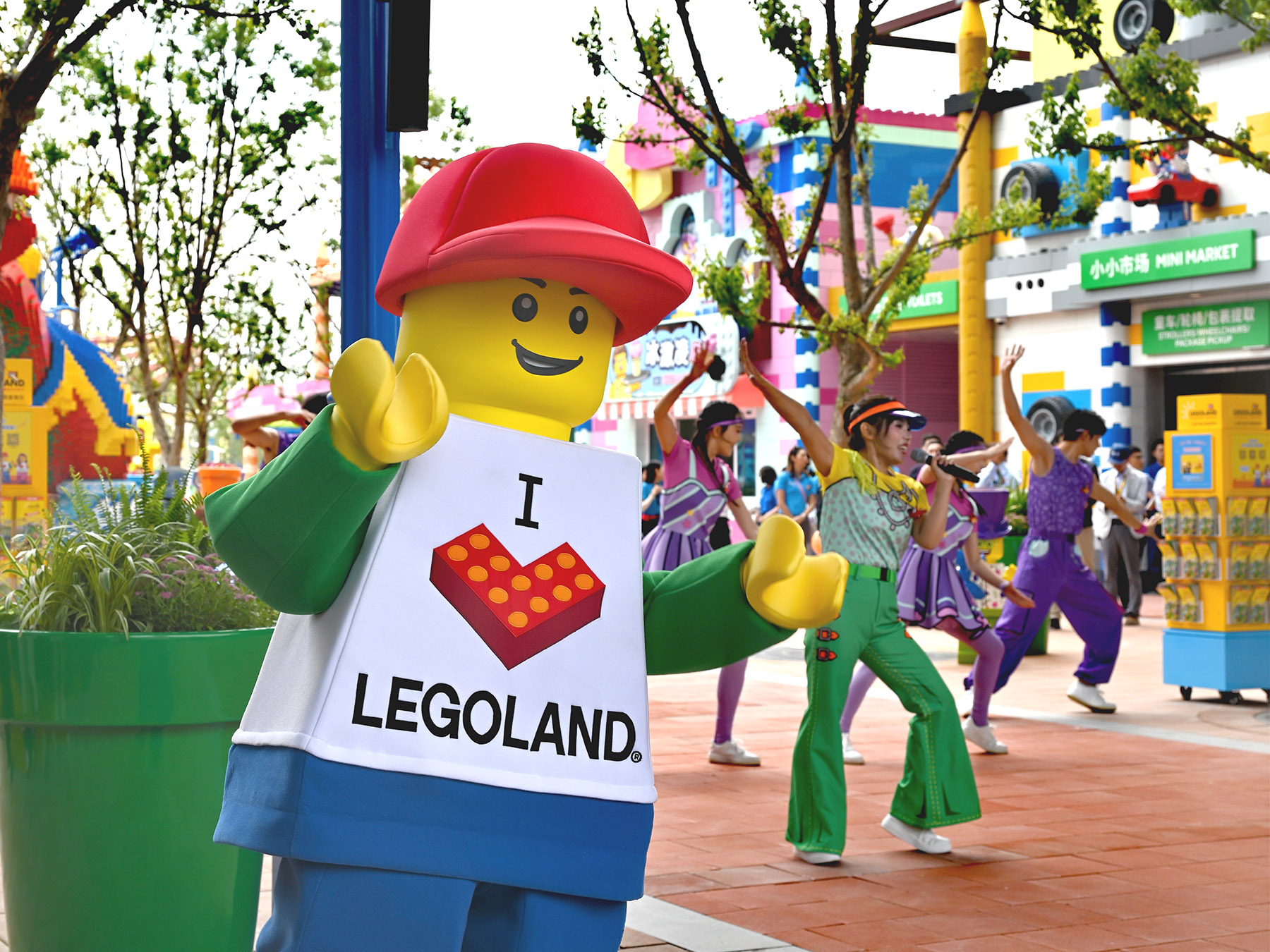
The LEGO Group is viewing China as a high-potential market, as the toymaker gears up to open its much-anticipated Legoland Shanghai Resort on July 5.
Julia Goldin, chief product and marketing officer at LEGO, said during her recent trip to Shanghai, "With more than 400 retail stores across over 100 Chinese cities, we're committed to expanding our presence with a portfolio of products tailored for Chinese consumers."
The senior executive visited the city to activate the World Play Day with key events in Shanghai, Berlin, Boston and London. The initiative aims to inspire children and families to reimagine urban spaces through the lens of play.
READ MORE: LEGOLAND Shanghai Resort to begin trial operations ahead of July opening
Launched on Wednesday, "World Play Day", which opened at the West Bund Dream Center, will run through July 27.
The campaign comes as new research commissioned by LEGO shows a growing disconnect between urban development and child-friendly planning.
Nearly a third of the world's children live in urban areas, and this is projected to rise to 70 percent by 2050. Yet, many of these children feel overlooked in city planning.
The study, which surveyed 10,000 parents and 10,000 children aged 6 to 16 across the world including the United Kingdom, United States, France and Poland, found that urban centers are generally falling short in providing safe and inclusive spaces for play.
"Play should not be limited to homes and schools — it should extend into our streets, parks and public spaces," said Goldin.
The Shanghai event coincides with a broader push by the toymaker to widen its reach in China, particularly in the year when Legoland Shanghai Resort is scheduled to open next month.
Covering 318,000 square meters in the city's Jinshan district, the resort, which is the world's largest Legoland, comprises a theme park and a hotel for children aged 2 to 12 and their families.
It features more than 75 interactive rides, shows and attractions, as well as thousands of LEGO models made with over 85 million LEGO bricks across eight immersive "lands".
Goldin said that, in addition to the resort, locally relevant products, including the Shanghai Skyline set, the LEGO Botanical Collection featuring Chinese flora, and the Monkie Kid series inspired by traditional Chinese mythology, are key to better resonating with local consumers.
Niels B. Christiansen, CEO of the group, said earlier this year that 2025 is a big year for the LEGO brand in China, pointing to a series of brand activities designed to engage a wide spectrum of consumers, from children to adult fans.
Clifton Chiu, senior analyst at Euromonitor International, said LEGO has continued to be the biggest player in the construction toys market for "kidults" in the Chinese market, with its roster of 18+ Lego sets being popular with local consumers.
To engage with evolving fans worldwide, the toymaker is also leveraging global partnerships to tap into consumer passions beyond traditional toy play.
ALSO READ: Merlin bullish on China's potential as Legoland Shanghai nears debut
The group recently teamed up with sportswear brand Nike and Formula 1 racing to integrate play into sports culture.
Chiu said the number of brands LEGO has collaborated with recently, such as Formula 1, has further increased its popularity by introducing racing fans to the LEGO space.
Goldin said of the team-ups: "We only pursue these collaborations when we can add extra value to the passion point. When we tap into consumers' passions, we can bring together immersive experiences and help them manifest and experience their passion in new and unique ways."
Euromonitor's data show that the toys and games market in China was valued at 420.8 billion yuan ($58.4 billion) in 2024, with a 7 percent growth, which was driven by the increased demand from the kidult demographic.
Categories such as construction toys, dolls and accessories are valued at 10.6 billion yuan. These categories saw noticeable growth as that demographic is shifting toward electronic forms of entertainment such as video games, according to Euromonitor.
Contact the writer at wangzhuoqiong@chinadaily.com.cn


